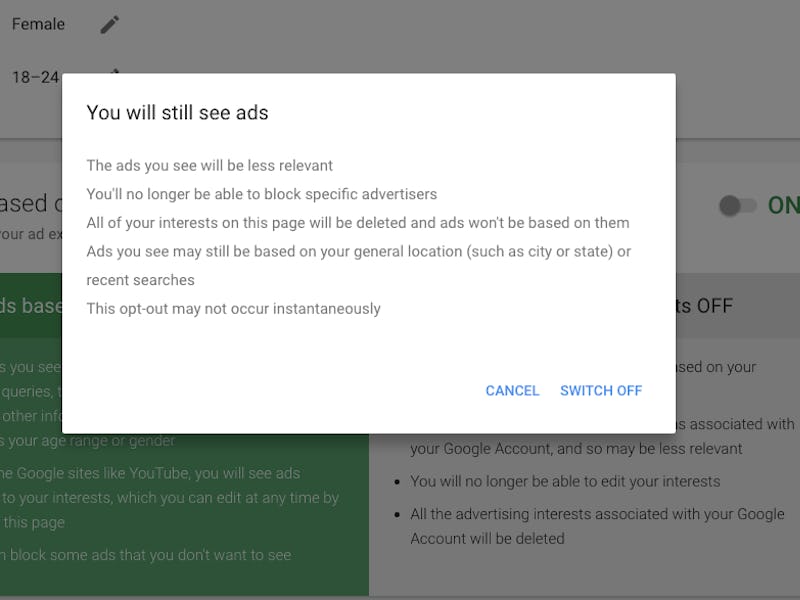
“E tu, Google?” The internet giant may have quietly stabbed its users in the back, privacy wise. According to a report released by ProPublica today, Google is now allowing its advertising system to collect data that is associated with identifiable user information.
While Facebook and Twitter have been selling user data to advertisers for years, Google has maintained up until now that it would keep user profile information and data collected for advertisers separate. But after the changes that recently went into effect system-wide, Google’s DoubleClick ads can now use information from your Gmail to serve you up ads on YouTube, your YouTube search history on your phone, or Google search on your laptop. Instead of packaging away your information for each service, Google will be giving access to your entire user profile to advertisers.
“Our advertising system was designed before the smartphone revolution. It offered user controls and determined ads’ relevance, but only on a per-device basis,” Google told ProPublica in a statement, adding that the new features were “100 percent optional.”
From fitness trackers to billboards, there aren’t a lot of technologies out there left that aren’t selling your data to advertisers.
While it’s sad to see Google cave in to the ways of Facebook and Twitter, it does make clear that it asks users to opt-in to the service. In order to make sure Google can’t serve you creepy ads based on all the video game walk-throughs you’ve recently watched, first go to “My Account” on your Google settings:
From there go to “Control Your Ads Settings” under “Personal Info and Privacy.” If you’ve opted in not understanding the service, you’ll see a button to “turn off” the setting that allows Google to suck up your data for advertisers.
No more blocking ads that Google is serving you :(
According to a pop-up that appears when you opt-out, the changes won’t occur “instantaneously.” It’s also important to note that you will still see ads on your Google services — they’ll just be based on less user data.
Still, with Google joining the league of social data-miners and telecommunications companies, like Comcast, suggesting users should have to pay extra for privacy, the future of user privacy on the net is looking bleak.